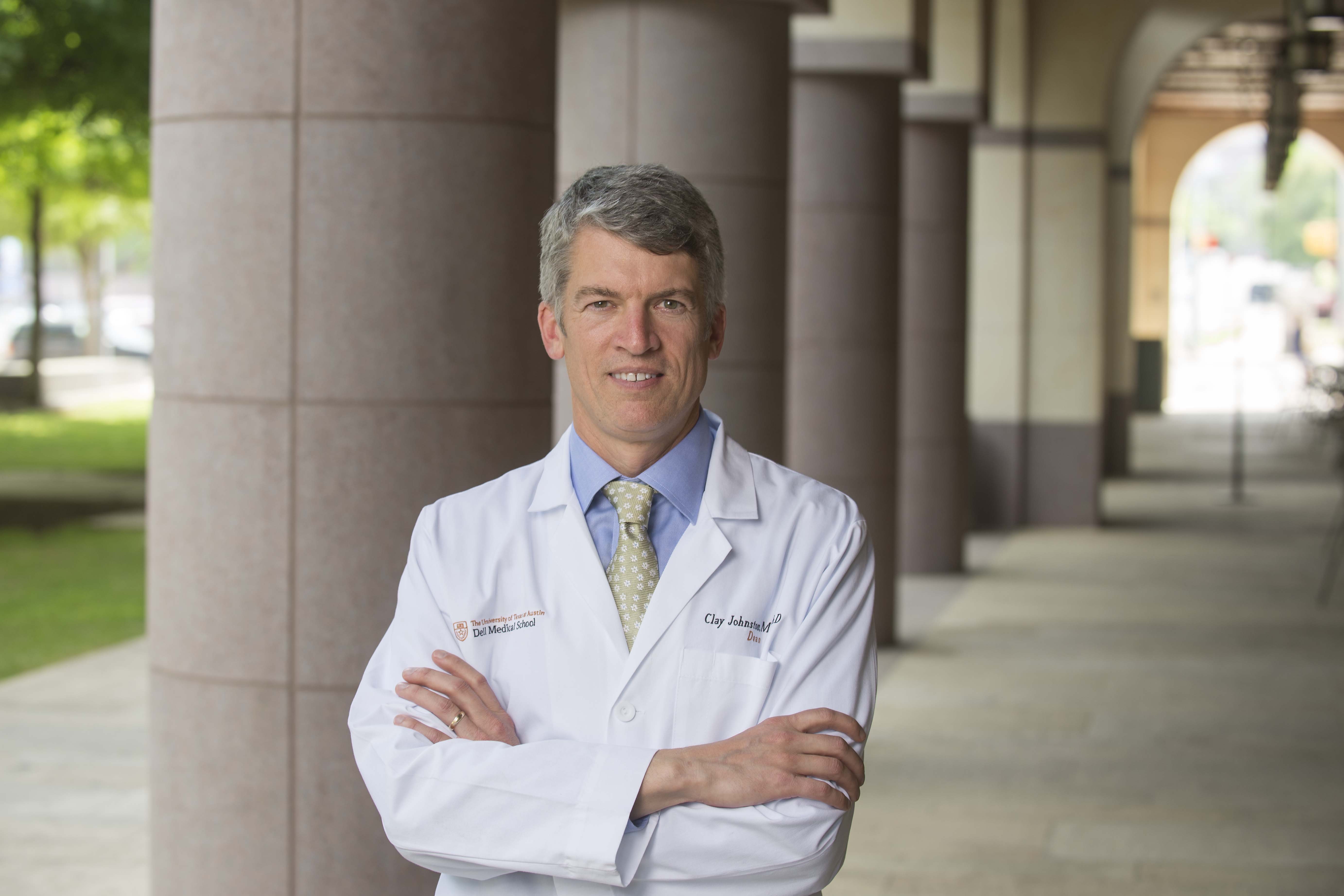After years of planning, UT Austin’s Dell Medical School — the first to be established at a Tier 1 research university in more than 50 years — proudly welcomed its first class of students this year. Dr. Clay Johnston, who moved from San Francisco in 2014 to serve as the school’s inaugural dean, gives us an insider’s perspective on the critical health challenges facing society today and the important role engineers play in improving health care.

You spent most of your life on the West Coast, but you’re a Texan now. What has been your impression of Austin?
I’ve loved getting to know Austin and Texas. I’ve never lived in a place with such a strong sense of community. Austin really is unusual in its flavor and in the diversity of perspectives. It has some of the vibrancy and youthfulness of San Francisco but without the dominance of short-term residence, in spite of the large student population. People come to Austin and want to stay and make it a better place.
You were an established leader at the University of California, San Francisco, serving as a faculty member, center director and associate vice chancellor of research. Why did you decide to make the move to UT Austin?
The opportunity here was just too great to pass up. I loved my job in San Francisco, but here we had all the stars aligned to do something really big and really important in health care and medical education.
Why is it important for UT Austin to have a first-rate medical school, and why is it also important for residents with no a affiliation to the university?
There is already a lot of great health-related research going on across UT Austin. We are helping to provide channels and bridging expertise to invigorate and extend that work. With the support of the medical school, the university has an even greater likelihood of producing important and measurable impact on health.
For those with no a affiliation with UT Austin, we hope to enable improvements in health and health care throughout the region. It will take longer to see this impact, but it is an important piece for us that we hope will become more obvious to people in a few years.
When you first arrived on campus as dean — before you had any students, faculty or facilities — what was the biggest challenge you faced?
The greatest challenge then and today is the same: It’s working through partnerships to enable a better system. Our partners, whether large entities like Seton Healthcare Family or Central Health, the Travis County health district, or smaller ones like individual community physicians, have been doing great work in health care for years. So we are asking ourselves: How do we make things even better for them, and for our patients, understanding their concerns about moving away from the current models?
Tell us about the experience of building a new medical school from scratch. What lessons have you learned during this process?
It’s been a fabulous ride—great fun but also not without some scary parts. Medical school taught me nothing about real estate development or the variety of legal structures for nonprofit entities. I’m learning fast!
What do you feel is the most critical problem affecting health care in the U.S. today?
We pay way too much for mediocre outcomes. We should have the best health and health care system in the world but instead, by World Health Organization rankings, we’re ranked between Cuba and Costa Rica. We need to be more focused on society’s desire for health.
How can engineers contribute to the solution?
Engineers have created effective solutions to a variety of major problems. They are pragmatic and results-oriented. We need a lot more of this in medicine.
In a few words, what is your vision for the Dell Medical School?
To enable a vital, inclusive health ecosystem.
In what ways can the Cockrell School provide value as you realize this vision?
We are already collaborating with Cockrell School faculty in a variety of areas related to education, research and the actual provision of health care. This will increase dramatically over the next few years. We hope to accelerate the work of the great faculty already here and also work together to recruit even more superstars.
What are some of the collaborative, cross-campus initiatives and opportunities that you are most excited about?
Informatics is going to be a huge win for health but it needs to be much more sophisticated. People are focused on large, simple datasets but we need to move now to large, messy data and prove how we can use it to enhance health.
The Dell Medical School’s inaugural class of students started earlier this year. How will their educational experience be different from others across the country?
We spend a lot more time focusing on population health, entrepreneurship, leadership and system change. We even carve out the whole third year of the curriculum for these things.
What truly makes the Dell Medical School extraordinary?
We are fully taking advantage of a fabulous opportunity to start from scratch to align academic medicine around society’s desire for health.